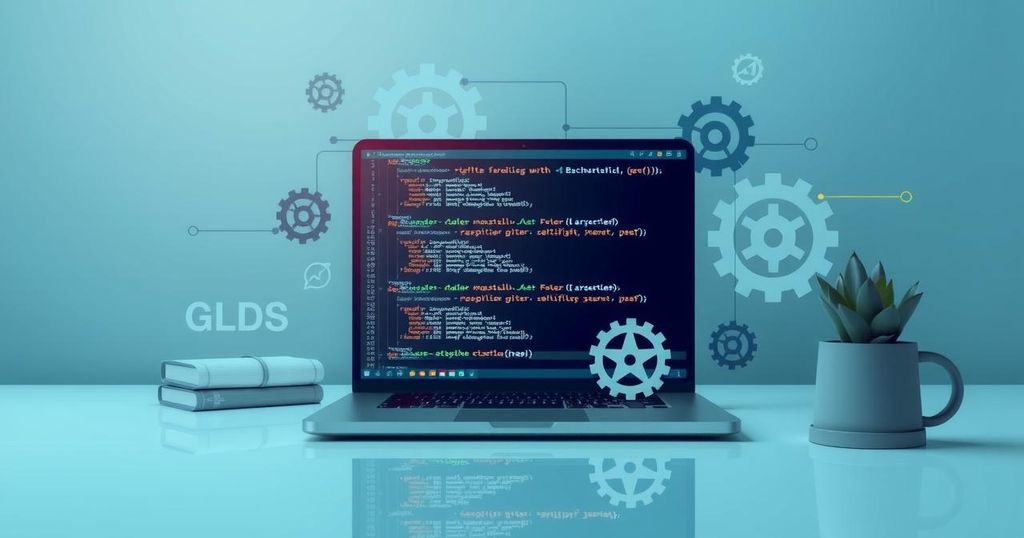Kshitij Patil Discusses Artificial Intelligence’s Transformative Role in Software Development
Kshitij Patil, a software engineer, explores the transformative impact of Artificial Intelligence on software development. He highlights how AI improves productivity by streamlining code implementation, though he emphasizes the continued importance of human oversight. Patil advocates for continuous learning and specialization among developers as AI becomes increasingly pivotal in the industry.
In today’s swiftly changing technological landscape, Artificial Intelligence (AI) is revolutionizing software development, moving it from a distant dream to a palpable reality. This dynamic tool not only enhances individual productivity but reshapes workflows, birthing a new era for human engineers who now ponder their evolving roles amidst this transformation.
Kshitij Patil, a seasoned software engineer with a comprehensive background, navigates the intricate balance between human innovation and AI efficiency. Hailing from India, he earned his Bachelor of Education in computer science before advancing to North Carolina State University for his Master’s. His journey through the industry, including pivotal roles at Concurrents Inc. and Amazon, equips him with a unique lens through which he views AI’s influence on software engineering.
Over the past year, Patil actively harnessed AI tools, which he believes dramatically streamline design processes. “AI tools make code implementation faster and easier,” he states, highlighting their role in automating code documentation, refactoring, and error-checking. AI significantly enhances the debugging phase, rapidly providing a strong initiation point for code creation, allowing engineers to refine and innovate efficiently.
Patil identifies a notable uptick in productivity as a key advantage of employing AI in coding tasks. He predicts an even broader incorporation of AI across software development, particularly in refining design patterns and software architecture. “With AI tools being used more in all aspects of the software development lifecycle, we will iterate on the product and service much faster,” he envisions, hinting at a future defined by rapid development cycles.
Reflecting on his past work, he admits, “Before I started using them, most of my time was spent writing much code.” Now liberated from tedious syntax and documentation tasks, he envisions a world where engineers can devote their efforts to overarching design and functionality, further propelling project timelines and product enhancements.
While AI’s potential growth captivates, the specter of job displacement looms large, sparking necessary debates. Patil deftly navigates this complexity but emphasizes that AI tools, though powerful, are not a replacement for human insight. “AI tools have shown they can perform many of the responsibilities of a traditional software developer,” he remarks, yet he stresses that human supervision is vital to ensure quality and safety in code outputs.
The phenomenon of “AI hallucination,” where AI may produce flawed outputs, underscores this necessity. Patil asserts that engineers are essential to validate AI-generated code, likening their role to that of a vigilant guardian overseeing AI’s contributions to ensure excellence, especially in specialized fields like gaming technology.
Patil also addresses scalability, noting that AI and Machine Learning (ML) solutions become crucial for startups and large corporations as their data needs expand. “AI/ML solutions can process data faster and more efficiently than traditional software solutions,” he explains, emphasizing their vital role in identifying patterns and automating responses to customer growth.
To future-proof careers in software development, Patil advises continual learning. “My advice would be to build a continuous learning mentality,” he encourages, underscoring the necessity for developers to enhance their skills in machine learning and data analytics to stay relevant. Specialization will be paramount as the software landscape continues to evolve.
With engineers like Kshitij Patil at the helm, the narrative of AI in software development unfolds—one that celebrates collaboration between human creativity and machine efficiency. This journey heralds an exhilarating age of innovation, where adapting to change paves the path for an expansive and thrilling future in technology.
In conclusion, Kshitij Patil’s insights underscore the transformative role of AI in software development, enhancing productivity while raising important questions about the interplay between human engineers and emerging technologies. As the landscape shifts, the need for continuous learning and specialization grows imperative. Engineers must adapt, not only to wield AI as a powerful tool but to navigate its limitations, ensuring quality and effectiveness. Thus, the future of software engineering appears both promising and challenging, ripe for those willing to innovate alongside AI.
Original Source: www.ibtimes.co.uk




Post Comment